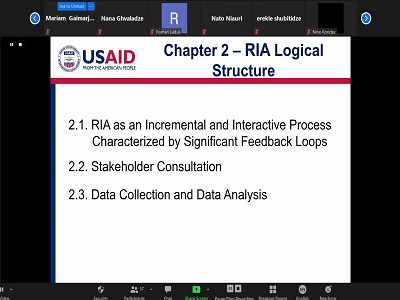- Details
Considering the significance of a green post-COVID recovery, alongside the importance of maintaining an ecological diverse economy, ISET Policy Institute has spent almost two years developing its Climate Policy Analysis Model. The model, funded by the Swedish International Cooperation Agency (Sida), helps to highlight the climate change adaptation and mitigation agendas, which are ultimately vital for Georgia’s overall economic development and growth.
ISET’s director, Tamar Sulukhia, hosted our latest event highlighting the role of the Climate Policy Analysis Model to the policy community and all interested participants. The speakers, including government representatives Maia Tskhvaradze and Ketevan Chapidze, revealed that Georgia has actively participated in climate change policy since 1994. Moreover, under the current targets of the 2030 Agenda, Georgia is actively attempting to reduce its greenhouse gas emission by 35% in comparison to the 1990s, with a further seven core objectives.
- Details
ISET’s Policy Institute is proud to announce the unveiling of its Regulatory Impact Assessment (RIA) Manual. The ISET Director, Tamar Sulukhia, introduced a presentation of the work, where she thanked governmental and donor initiatives alongside USAID for all the assistance provided during the process. Since the institutionalization of RIAs in Georgia last year, such assessments have become vital to the country. Crucially, having completed 24 RIAs thus far, ISET was in the perfect position to author the Manual based on years of experience and expertise.
Laura Berger from USAID and Davit Korakhashvili from the Government of Georgia went on to highlight the vast benefits of RIAs, which have been used in effective policy creation since 2015 in Georgia. They emphasized their significance in draft laws and for policymakers, and also in the impact on democratic development. Thus, ISET’s RIA Manual for Practitioners will act as a roadmap for success during the institutionalization process.












